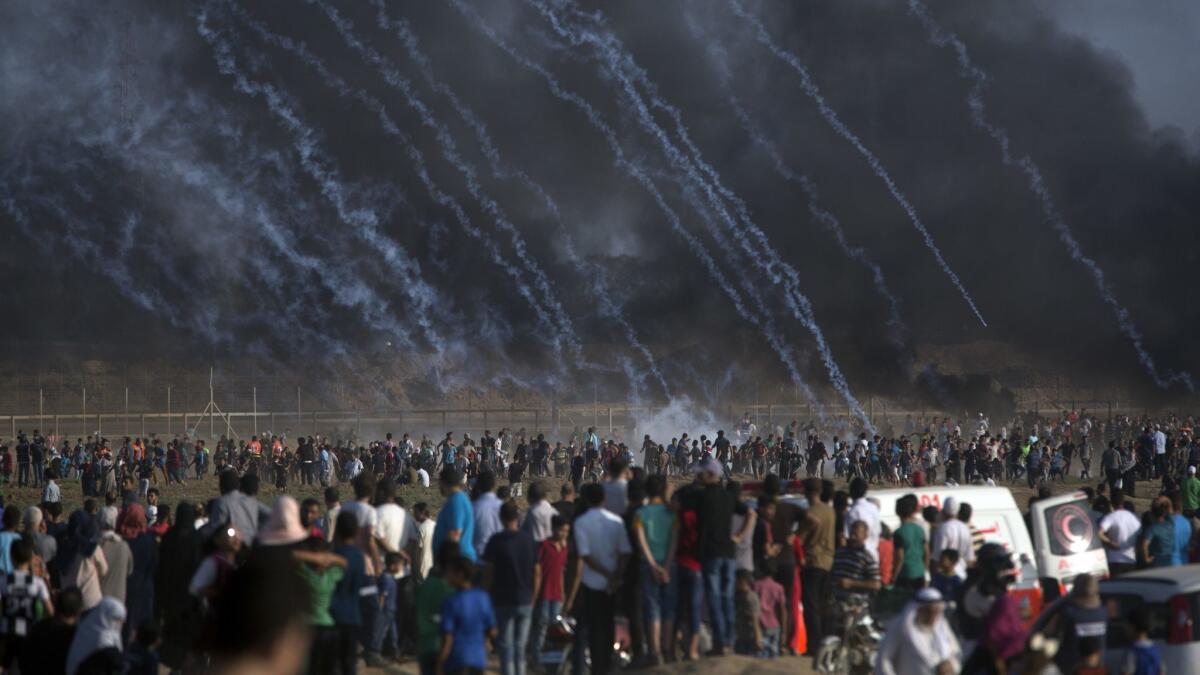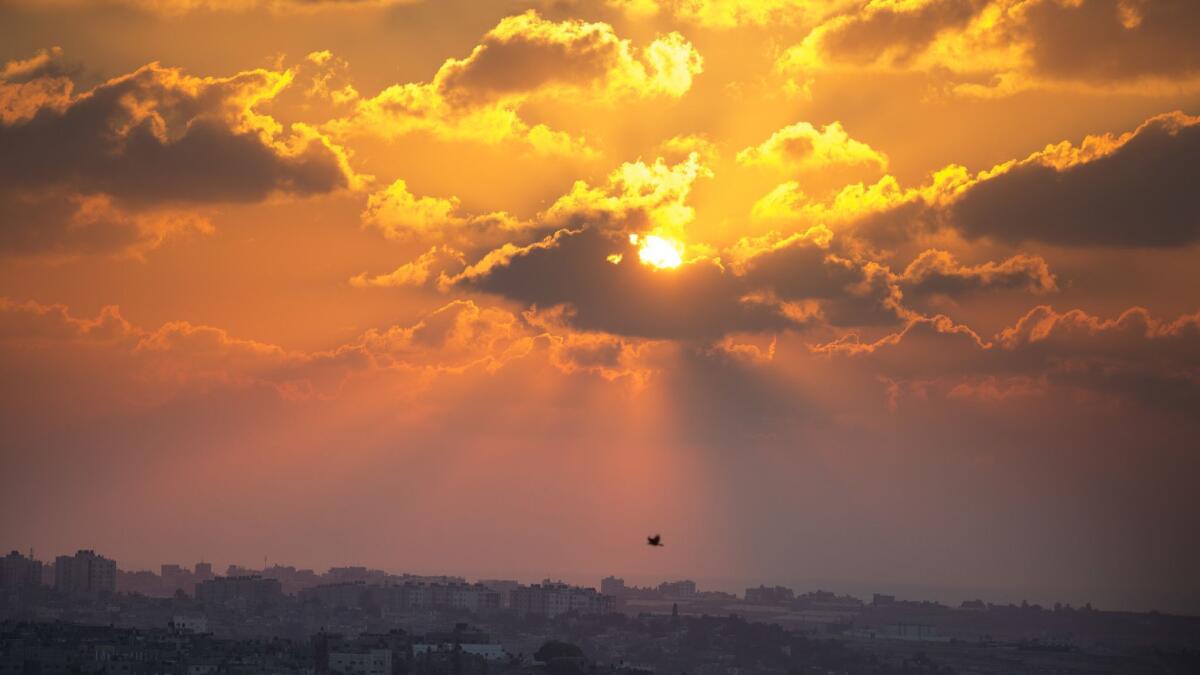Netanyahu cancels trip abroad as possible Israel-Hamas cease-fire deal emerges

- Share via
Reporting from Jerusalem — Israeli Prime Minister Benjamin Netanyahu on Thursday abruptly canceled an official visit to Central and South America as a possible agreement to halt the violence and ease tensions along its border with the Gaza Strip appeared to be emerging.
In a statement, an Israeli government official said the trip, during which Netanyahu was scheduled to meet with the presidents of Colombia, Argentina, Chile, Guatemala and Honduras, was being canceled “due to the situation in the south.”
The Israeli government also announced it had set a security cabinet meeting for Sunday to discuss progress on a potential deal that the United Nations and Egypt are mediating with Hamas, the Islamist militia that rules the Palestinian Gaza Strip. One official called the negotiations “a breakthrough.”
But previous efforts to achieve a long-term truce between Israel and Gaza have fallen apart, though this marked the first time that the Israeli government has made reference to a possible arrangement. No details were released on what the agreement might include.
A truce would end four months of deadly protests on the Gazan side of the border and would likely lift the onerous Israeli measures, both military and economic, that have aggravated the humanitarian crisis in Gaza. Some 136 Palestinians and one Israeli soldier have been killed since the protests began.
Gaza has also been hurt by a blockade imposed by Israel and Egypt since Hamas took control of the Gaza Strip from the Palestinian Authority in a violent uprising in 2007, making life increasingly tough with electricity shortages, rising unemployment and growing poverty.
President Trump’s decision in January to slash American funding for the U.N. Relief and Works Agency, an agency founded in 1949 to provide support for the Palestinian refugees of the 1948 Arab-Israeli War, has deepened the level of hurt by reducing many basic services in Gaza.
And in the latest crackdown, Israeli Defense Minister Avigdor Lieberman on Wednesday ordered that all fuel and gas imports to Gaza be halted, a directive that was in response to Hamas’ ongoing campaign of launching balloons and kites carrying incendiary devices into Israel. The aerial attack has been blamed for starting dozens of fires that have burned farmland and forests.

The possibility of a truce first arose Sunday when Nickolay Mladenov, the U.N. special coordinator for the Middle East peace process, announced “a productive day of meetings” with Egyptian officials to “de-escalate the situation in Gaza, resolve all humanitarian issues and support [the] Egyptian-led reconciliation process.”
In the last week, Mladenov has met with senior Israeli officials, including Netanyahu, in Jerusalem and with Hamas officials in Gaza.
In another indication that a deal may be at hand, Hamas’ deputy leader, Saleh Arouri, arrived in Gaza late Thursday as part of a delegation of the organization’s officials exiled in Qatar.
Israeli media reported that Mladenov and Egypt gave Hamas reassurances that Israel would not attempt to detain or harm Arouri while he was in Gaza to discuss a possible truce. Israel contends Arouri was the mastermind behind several terrorists attacks and regards him as a criminal.
Meanwhile, several initiatives to relieve the harsh living conditions in Gaza have been rolled out.
Without announcement, the Trump administration recently released several million dollars in funds to Palestinian Authority security forces that cooperate with Israel to maintain security in the West Bank. And a State Department spokesperson told National Public Radio that it is scrutinizing other Palestinian aid projects to determine their “value to U.S. taxpayers.”
On Thursday, Israeli defense confirmed it had approved the transfer of equipment and goods needed to complete the construction of a desalination plant and eight water reservoirs in Gaza. The development, which was first reported by the Israeli daily newspaper Haaretz, is being carried out by American companies operating with a Gazan contractor at a projected cost of $16 million.
The reservoirs and desalination plant had been postponed for months because of security concerns in Gaza and Israel’s decision to ramp up the restrictions on goods moving into the Strip.
Earlier this week, seven former U.S. ambassadors to the United Nations — some Democrats and some Republicans — and a delegation of 70 Democratic members of Congress asked U.S. Secretary of State Michael R. Pompeo in a letter to restore U.S. funding for humanitarian aid in Gaza.
“We all recognize the serious security and political challenges in Gaza. However, U.S. support for the basic human rights of Palestinians living in Gaza must not be conditioned on progress on those fronts,” they wrote.
Special correspondent Tarnopolsky reported from Jerusalem. Special correspondent Hana Salah reported from Gaza City.
More to Read
Sign up for Essential California
The most important California stories and recommendations in your inbox every morning.
You may occasionally receive promotional content from the Los Angeles Times.













